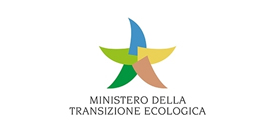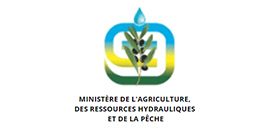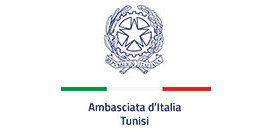ICAPT
ICAPT « Implémentation de Pratiques Agricoles intelligentes face aux Changements Climatiques en Tunisie » est un projet mis en œuvre par MEDREC, le Centre Méditerranéen des Energies Renouvelables, dans le cadre de la coopération technique entre le Ministère Italien de la Transition Ecologique (MITE) et le Ministère Tunisien de l’Agriculture, des Ressources Hydrauliques et de la Pêche (MARHP).
Project avec les nombres
- Date de Lancement : Mai 2021
- Durée du Projet : 30 mois
- Budget Total du Projet : 2.560.000,00€
Objectifs
Le projet ICAPT vise à identifier et à mettre en œuvre des solutions efficaces et durables en vue d’optimiser l’utilisation des terres avec un rendement eau-valeur maximal et des pratiques à faible consommation d’énergie dans les Périmètres Publics Irrigués (PPIs) en aval du barrage de Nebhana, dans les gouvernorats de Kairouan, Sousse, Monastir et Mahdia, et ce à travers :
- La réduction des émissions de Gaz à Effets de Serre (GES) en utilisant des technologies à faible consommation d’énergie,
- La mise en place d’une gestion intelligente et économe en énergie dans des zones agricoles,
- Le développement des chaînes de valeur associées et des ressources associées,
- Le renforcement de la résilience des communautés agricoles et des moyens de subsistance ruraux face au changement climatique en adoptant une approche participative basée sur la concertation entre les différents acteurs locaux et en implémentant des solutions énergétiques efficaces et durables,
- La sensibilisation et l’implication des agriculteurs dans une approche agricole intelligente face au climat par la mise en place de zones agricoles intégrées pilotes, et par l’échange d’expériences techniques et managériales,
- L’amélioration de la productivité et la durabilité de l’agriculture,
- L’installation d’une centrale photovoltaïque et d’une armoire à variateurs de vitesse pour l’alimentation de la station de pompage d’eau potable à Chott El Fejij, Gabès.
Les effets du changement climatique – températures plus élevées, phénomènes météorologiques extrêmes plus fréquents, pénurie d’eau, dégradation des sols, perturbation des écosystèmes et perte de biodiversité – compromettent sérieusement les activités agricoles, particulièrement dans les zones vulnérables, empêchant ainsi toute avancée vers la réalisation d’objectifs de développement durable.
Pour relever ces défis, une stratégie nationale de lutte contre le changement climatique a été élaborée (2012, Lien), de même que des stratégies d’adaptation pour les secteurs de l’agriculture et des écosystèmes, engageant notamment le Ministère de l’Agriculture, des Ressources Hydrauliques et de la Pêche (MARHP). Ces stratégies nationales ont servi de base à la définition de la Contribution Déterminée au niveau National de la Tunisie, pilier de la mise en œuvre de l’Accord de Paris ratifié en février 2017, afin de contribuer à l’amélioration de la résilience du secteur agricole au changement climatique tout en contribuant aux efforts internationaux de réduction des émissions de gaz à effet de serre (GES).
Le projet ICAPT fait donc partie de la contribution du MARHP à la réalisation des objectifs de développement durable, notamment par la mise en œuvre de ces actions:
- Promouvoir l’utilisation durable des écosystèmes terrestres, enrayer la dégradation des sols et lutter contre la désertification, conformément à la Stratégie nationale de développement durable;
- Promouvoir les technologies vertes et les emplois verts dans le secteur agricole;
- Promouvoir les technologies agricoles à haute efficacité énergétique et les technologies conformes à la stratégie nationale de conservation de l’énergie.
- Adapter les cultures irriguées dans les régions centrales de la Tunisie et adapter le système de production mixte agriculture-élevage au changement climatique dans les régions vulnérables.
Partenaires
- Ministero della transizione ecologica (MITE) (Autorité de financement)
- Ministère de l’Environnement, des Ressources Hydroliques et de la Pêche Maritime (MARHP) (Autorité de financement)
- Centre méditerranéen des énergies renouvelables (MEDREC) (Agence d’exécution)
- Ambassade d’Italie en Tunisie (Patronage)





